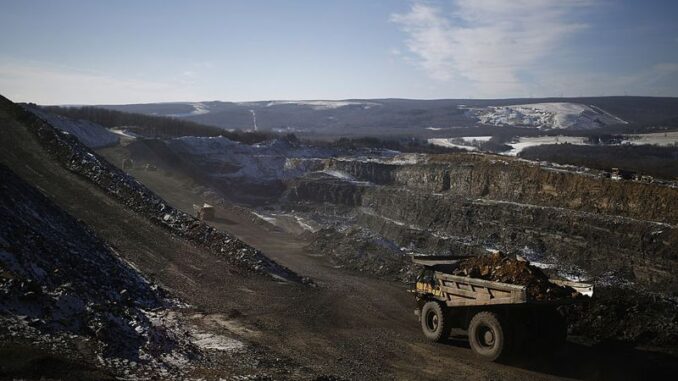
As far as climate groups like the Sunrise Project are concerned, getting insurers out of the coal underwriting business is the most important thing they can do. No more insurance, no more coal.
It’s something Sunrise has been pushing for years. But while it’s happening in Europe, it hasn’t caught on in America.
Analysts at Societe Generale SA published a report about European insurers and reinsurers that, for the first time, includes a specific ESG input for stock valuations. It primarily reflects each insurer’s stance on coal, the dirtiest of atmosphere-wrecking fossil fuels. The analysts determined that an insurer’s position on coal underwriting and investments can have an effect on its valuation ranging from -3% to +9%.
In other words, insurers that do more to exit coal can gain points in their stock valuation while those who have done the least will lose.
SocGen’s scoring metric is most heavily weighted toward environmental issues, as opposed to social and governance factors. Using this system, the bank’s analysts raised their target price for Axa SA shares by 6%, their target price for Swiss Re AG, Zurich Insurance Group AG, Assicurazioni Generali SpA, Allianz SE and Munich Re by 5%, and their target price for Scor SE by 4%.
Prudential Plc ranked lowest of the 10 companies in the SocGen report, getting just a 1% boost in its target price from its coal policies.

Putting a stop to coal underwriting is particularly significant because, without insurance, coal projects are simply not viable, the SocGen analysts wrote in their 74-page report. “Therefore, the insurance industry can, almost single-handedly, exert pressure on coal energy producers, which other industries are less well placed to do,” they wrote.
Climate Analytics, a climate science institute, said coal is the most carbon-intensive fossil fuel, and getting rid of it is a key step to achieve the emissions reductions needed to limit global warming to 1.5°C. The institute said its research shows that coal needs to be phased out globally by 2040 to meet commitments in the Paris Agreement.
Nevertheless, little has been done to curb the growth of coal, the SocGen analysts wrote. As recently as July, new coal projects with a combined capacity of 737 gigawatts were still in the pipeline or under construction. Given this potentially disastrous trend, insurance companies deciding to get out of the business could have an outsized influence on curbing coal.
The SocGen report cites analysis from Insure Our Future, which said Axa and Swiss Re scored the highest for their underwriting policies. Both companies said they have stopped insuring new and existing coal projects. Scor, Munich Re, Allianz and Zurich Insurance have “somewhat less comprehensive” efforts to sideline coal, since they still provide insurance for some existing coal operations, according to the report.

European insurers are at the forefront of dumping their coal investments, too. Scor, Axa, Swiss Re, Zurich Insurance and Allianz are leading the way, the analysts said.
The same can’t be said for U.S. insurers, such as American International Group Inc. and Travelers Cos., said Ross Hammond, senior strategist at the Sunrise Project. These companies are providing a lifeline to the coal industry by continuing underwriting support, he said.
The Sunrise Project is among the nonprofits behind “BlackRock’s Big Problem” campaign, which is pushing the world’s largest money manager to use its heft to press companies to align practices with a low-carbon world. For the past four years, Sunrise Project has worked through Insure Our Future to pressure the global insurance industry to stop underwriting and investing in coal.
“Ending insurance for coal and other fossil fuels is most important thing for insurers to do to fight climate change,” said Peter Bosshard, the Sunrise Project’s finance program director. “It’s in the public interest.”
Bloomberg Green



